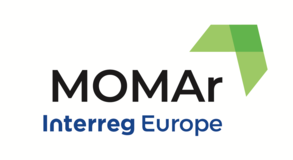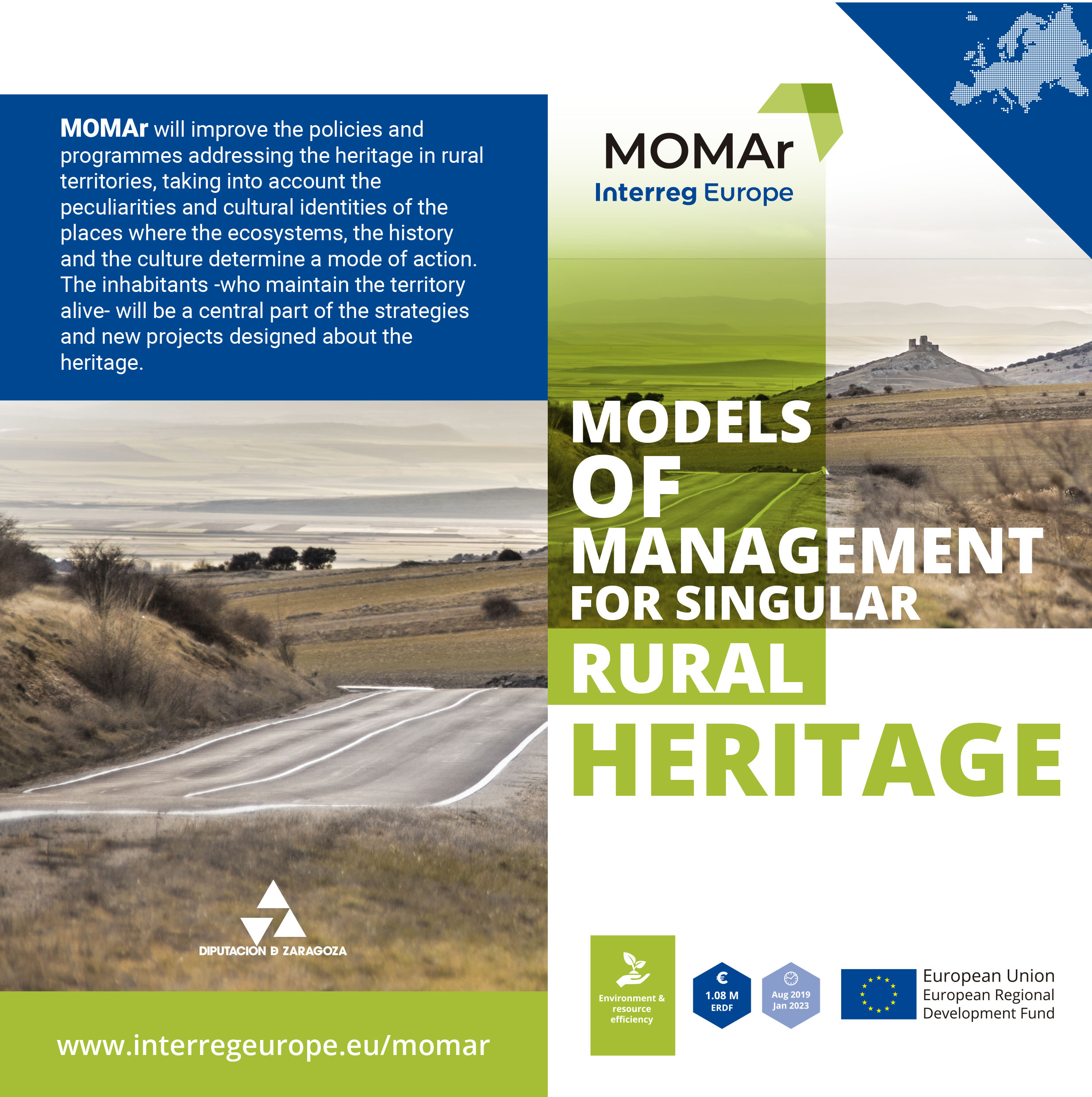MOMAr traveled to South Bohemia, in the Czech Republic, to carry out a study visit to know first-hand the good practices in heritage management that are developed in the region and thus, assess their possible integration into the management models of each partners’ region.
The visit took place for two days, March 23th and 24th. It was hosted by the partner Regional Development Agency of South Bohemia (RERA a.s) and attended by all the partnership: the Provincial Government of Zaragoza (Spain), the Territorial Administrative Unit of Mehedinti County (Romania), the Province of Groningen (the Netherlands), the Ministry of Regional Development and Transport of Saxony-Anhalt (Germany). Stakeholders from each country could also join the meeting and learn from the experience.
Learning on the ground
The visit began in the town of Hluboká nad Vltavou with a presentation session about the tourist offer and destination management in the tourist area Budějovicko-Hlubocko linked to local heritage. The director of the destination company of the same name, Tomáš Polanský, presented the most important activities in the area and the methods of their creation, promotion and further development. The session was followed by a visit to the hotel-castle of the town, the most visited place in South Bohemia. Afterward, the group travelled to Písek to know a historic malthouse as an example of the reconstruction of industrial heritage for social use. The building is currently a public play center in which educational exhibitions for children are offered, with great success among the local population as explained by the operations director Petr Brůha. Likewise, the municipal library of Soběslav was shown to the attendees as a successful case in the recovery of a disused historical space. The public facility is located in a medieval castle that thanks to the architectural rehabilitation, promoted by the neighbors, now offers a communal space dedicated to culture. As stated by Michaela Pimperová, head of the Seběslav city information center, the library hosts a number of concerts, author readings and other cultural and social events every year.
The second day of the trip began with a visit to Jan Žižka of Trocnov monument. The head of the monument, Miroslav Petrovský, and the head of the educational department of the South Bohemian Museum, Lukáš Faktor, presented the participants this replica of a farmhouse from the middle age rebuilt with original materials and techniques. This complex, still under construction, is named in honour of the national hero, Jan Žižka, and evokes the atmosphere of a yeoman farm, one in which Jan Žižka of Trocnov could have grown up. It is also a necessary space for the recovery of historical memory and a unique place since no original buildings of that time are preserved anywhere in the country. The experts then went to the town of Pořešín to explore a 14th-century castle that is being rebuilt by the Malše River Castle Association as part of a cross-border cooperation project with Austria as the fortress is part of an extensive line of defence along the entire common border. Radek Kocanda, chairman of the Hrady na Malši association, welcomed the group and introduced the heritage site and its project.
Moreover, in the same place partners and stakeholders had an interesting work session where they could reflect on under management cases using the Six Thinking Hat Methodology. The technique consists in sharing diverse points of view about a problem in order to find an original solution all together. As a result, the group agreed on the importance of involving the local population in heritage projects to avoid failed practices in heritage management, a conclusion that will be considered in their Action Plans.
Isabel Soria, Head of Culture, on behalf of the lead partner, wanted to close the session by encouraging partners and stakeholders to expand their approach in the heritage management field. Soria also stood up for a time of opportunities and development around Europe, especially regarding the context of Agenda 2030.
The day ended with a tour of the Renaissance town of Český Krumlov, a UNESCO World Heritage Site. This town attracted millions of tourists before the pandemic but the restrictions on international mobility have made it a case of study due to the challenges and opportunities that are currently opening up in the city, mostly in the field of heritage management.
The MOMAr project will travel next April to the Province of Groningen (The Netherlands) to continue its work of identifying good practices and exchanging experiences.












